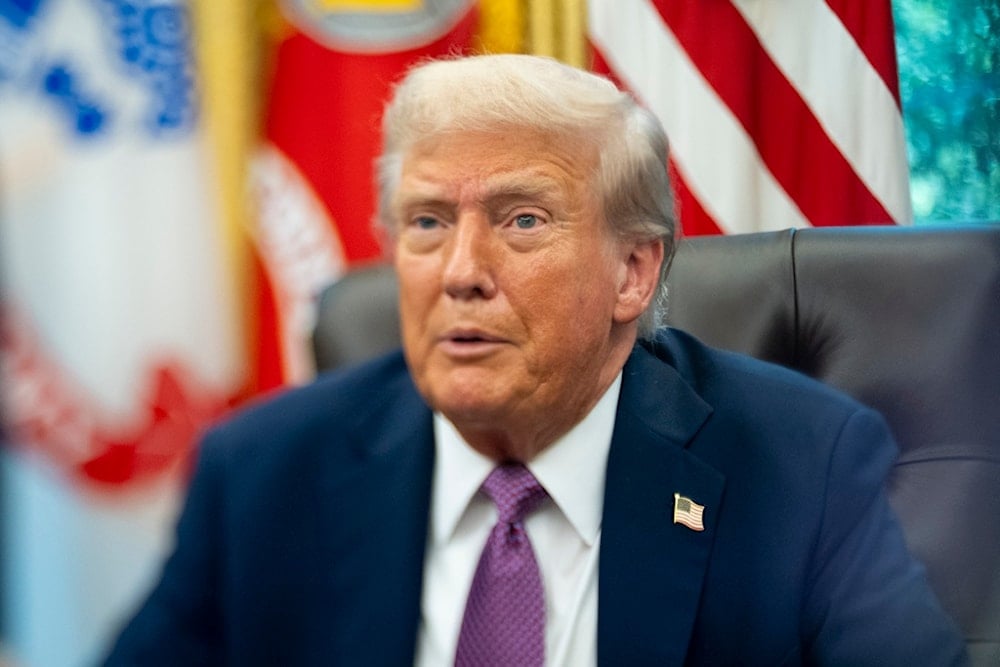Modi, Trump affirm strong ties despite US tariffs, China concerns
Indian Prime Minister Narendra Modi and President Donald Trump reaffirmed their strong personal and strategic ties despite new US tariffs on Indian goods and concerns over India's relations with Russia and China.
-

US President Donald Trump speaks in the Oval Office of the White House, Friday, Sept. 5, 2025, in Washington. (AP Photo/Alex Brandon)
Indian Prime Minister Narendra Modi reaffirmed on Saturday that New Delhi and Washington share "very positive" relations, a message issued hours after US President Donald Trump toned down his earlier warning about "losing India" to China and affirmed his personal friendship with the Indian leader.
The exchange comes amid heightened economic strains. Washington recently imposed tariffs of up to 50 percent on Indian imports, accusing New Delhi of undermining Western sanctions by continuing to purchase discounted Russian crude oil.
India has rejected the accusation, maintaining that its energy policy is driven by affordability and national interest.
Despite the trade rift, Trump underlined that his rapport with Modi remained strong. "I will always be friends with Modi," he told reporters. "India and the United States have a special relationship. There is nothing to worry about."
Modi reciprocated on X, writing: "Deeply appreciate and fully reciprocate President Trump's sentiments and positive assessment of our ties." He added that both countries enjoy a "very positive and forward-looking comprehensive and global strategic partnership."
Deeply appreciate and fully reciprocate President Trump's sentiments and positive assessment of our ties.
— Narendra Modi (@narendramodi) September 6, 2025
India and the US have a very positive and forward-looking Comprehensive and Global Strategic Partnership.@realDonaldTrump @POTUS https://t.co/4hLo9wBpeF
India's Strategic Balancing
The diplomatic reassurances follow Modi's recent trip to China to attend the Shanghai Cooperation Organisation summit, his first in seven years.
His appearance alongside Chinese President Xi Jinping and Russian President Vladimir Putin was interpreted as a signal of thawing ties between New Delhi and Beijing, particularly as Washington and India clash over trade.
Analysts noted that the timing gave Beijing additional leverage, as Trump's tariff escalation pushed India to diversify its strategic options.
The US president, meanwhile, has grown irritable over India's dismissal of his past efforts to mediate in Kashmir, a role he once called "Nobel Prize-worthy diplomacy" after the flare-up between India and Pakistan in May.
New Delhi has consistently refused third-party involvement in the dispute, reinforcing its policy of strategic autonomy.
Read more: Modi, Xi Pledge to Strengthen China-India Relations
Taken together, the episode illustrates India's balancing act: maintaining a strong strategic partnership with Washington while keeping its channels with Moscow and Beijing open.
For China, the SCO summit offered an opportunity to showcase that US tariffs may drive India closer to its Asian neighbors, underscoring how regional dynamics are shifting against the backdrop of global trade and security tensions.

 3 Min Read
3 Min Read








